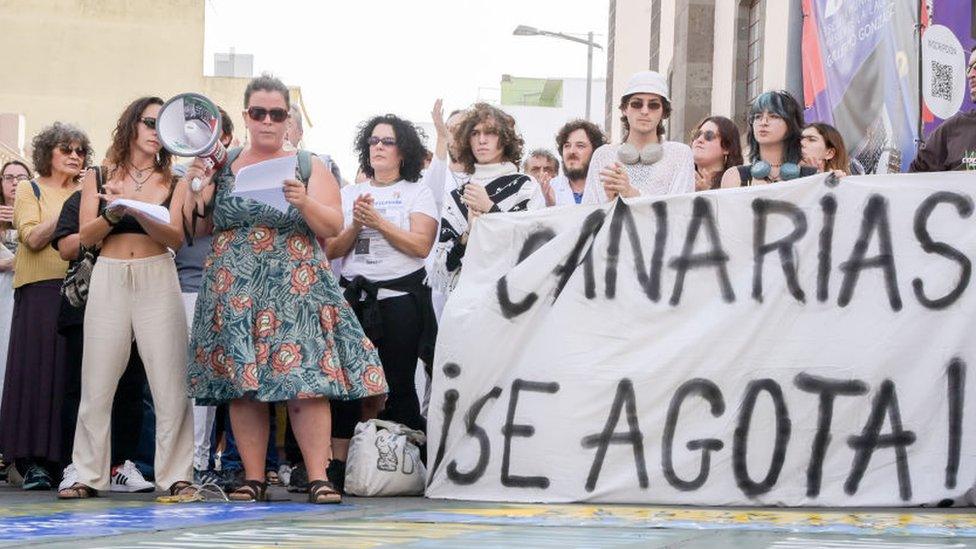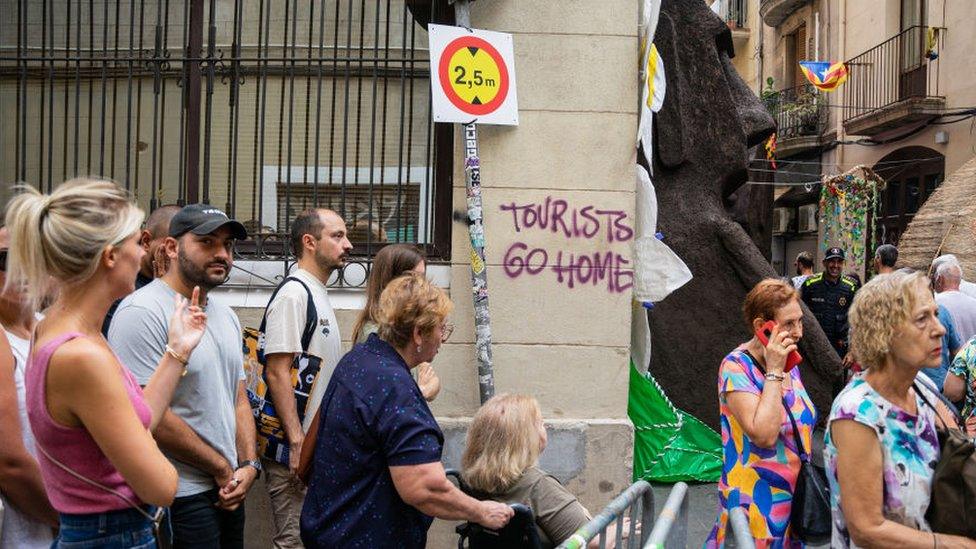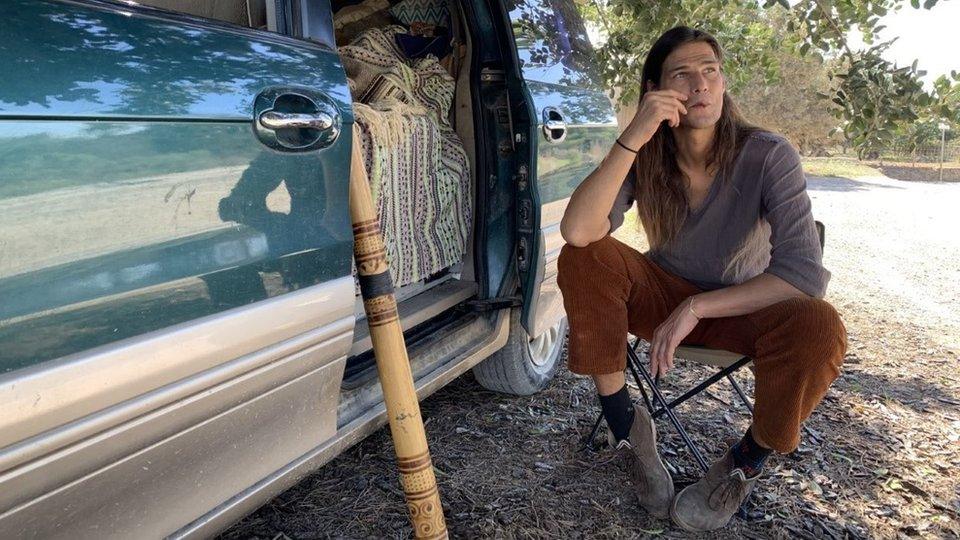Protesters in Spanish Canary Islands on hunger strike over mass tourism
- Published

The hunger strike began outside a church in La Laguna in the north of Tenerife
Activists have begun a hunger strike on the island of Tenerife, in protest at what they see as the destructive growth of tourism on the Canary Islands.
Protesters are calling for a halt to the construction of a hotel and a beach resort in the south of the island.
They also want a moratorium on all tourism development projects.
The small group of hunger strikers began their protest on Thursday night after a deadline for local authorities to discuss the matter expired.
The move is part of a wider protest movement across the islands, calling itself Canarias Se Agota, or The Canaries Have Had Enough.
"Either [the local authorities] listen or these people are going to put their lives at risk," Rubén Pérez Flores, a spokesman for Canarias Se Agota, told local media.
A series of protests are being organised across the archipelago next weekend.
A total of 13.9 million tourists visited the Canary Islands in 2023, according to local chamber of commerce figures, 13% more than the year before. That is about six times more than the islands' population of 2.2 million.
The biggest tourist markets for the islands are the UK and Germany, although they are also a popular destination for mainland Spaniards.
The building of the La Tejita hotel and the Cuna del Alma resort, which have been the targets of campaigners' anger, have been beset by legal issues.
Work on both projects was interrupted due to environmental concerns before resuming.
This week, Spain's Congress voted not to halt the construction of the Cuna del Alma project despite protests outside the parliament building. The left-wing Podemos party had warned that the 400-villa resort was being built "on one of the last virgin zones" of the Tenerife coast.
The Canarias Se Agota movement believes the numbers of tourists are excessive, making the islands less inhabitable for locals, impacting the environment and pushing up housing costs.
In 2023, 34% of Canary Islanders were at risk of poverty or social exclusion, the second-highest figure in Spain after Andalusia, according to the National Statistics Institute (INE).
"What we're asking for is for no more development," said filmmaker Felipe Ravina in a video explaining the protestors' grievances. He said a moratorium on new tourism projects would give the Canary Islands a chance to reconsider their economic model.
"Ironically, it is tourism itself which is destroying the very same product which it is selling," he said.
More from Guy: Ibiza locals living in cars as party island sees rents soar
Anti-tourist graffiti has been daubed on walls in some parts of the Canary Islands recently, reflecting growing anger.

There is growing frustration at tourist numbers in Barcelona and other tourist hot spots in Spain
Other areas of Spain are seeing similar concerns about tourism. In Barcelona, campaigners are calling for more controls on arrivals. Authorities in Ibiza blame illegal tourist flats for a housing crisis which has left some local professionals sleeping in their cars.
The Chamber of Commerce of Santa Cruz de Tenerife, the island's capital, said in a social media post that it believed "in the need to reflect on the future" of the tourism industry.
However, it warned against what it called "tourism-phobia", given that the industry makes up 35% of the archipelago's GDP and 40% of its jobs.
Fernando Clavijo, regional president of the Canary Islands, underlined their reliance on tourism, describing it as a "successful model".
However, he admitted that the upcoming demonstrations on 20 April presented an opportunity to review that model.
Related topics
- Published6 April 2024
